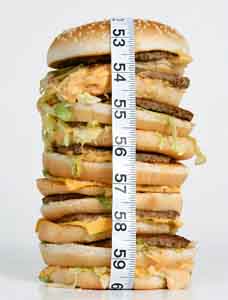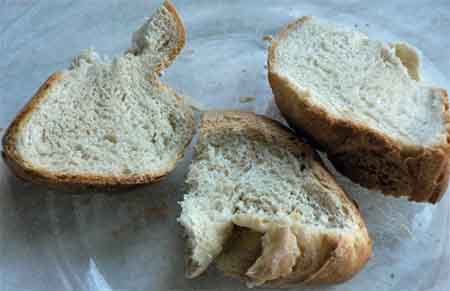Jon explains why you should be very concerned about rumblings out of Washington and across the country to tax “fat foods” as a new source of revenue.
Like the vampire that will not die but keeps resurrecting with increasing vigor in sequel after sequel, the “fat tax” will not die. Think tanks, public health experts, and politicians who are calling for extra taxes on foods and drinks that are heavy in calories and light on nutrition. Back in January, I wrote about New York’s proposal to tax sugared sodas as a budget-balancing measure, only to abandon their plan three months later in the face of stiff public opposition. At the time, New Yorkers were not amused by this proposed obesity tax on sodas and other non-nutritional drinks. Even those who prefer diet soft drinks, which would not be subject to the tax, said no to the proposal by a 58% to 39% margin. And the opposition ran across the political spectrum.
But bad ideas never seem to go away. On May 19th, New York’s legislators announced their intention to try the fat tax again with a proposed one cent excise tax on non-diet sodas. And this time, the idea seemed to pick up resonance in Washington where a number of senior aides and lobbyists saw new federal taxes on soda and other sugary drinks as a way to help pay for the proposed overhaul of the nation’s health-care system.
And now, three months later, as everything does in Washington, the idea has gotten bigger. No longer are we talking about sodas, but about an “obesity” tax that makes you pay for everything that might make you fat. So far, no actual sitting Congressional politician has specifically endorsed these ideas — yet — but the pressure is building. And this time, public opinion seems to have shifted and is now lining up behind it. A Kaiser Family Foundation poll last month found that 55% of respondents favored a tax on unhealthful snack foods, up from 52% in April. Support for a soda tax rose to 53% from 46%. And even more significantly, 63% of those who opposed the idea actually said that they would change their minds if the revenue were specifically used to fund healthcare reform and combat health problems related to obesity.
So the question at hand must be, “How could I, a long time proponent of healthy lifestyles and proper eating, be opposed to such a tax?” Well, let me explain…once again.
The history of sin taxes
 The use of “sin” taxes to control social behavior has been around for decades. In Europe, they are often called Pigouvian taxes, named after the 20th-century English economist, who first formalized the economic concepts that explained how they might work. Taxes on cigarettes, alcohol, and gambling are typical examples. The original idea was that such taxes accomplish two objectives:
The use of “sin” taxes to control social behavior has been around for decades. In Europe, they are often called Pigouvian taxes, named after the 20th-century English economist, who first formalized the economic concepts that explained how they might work. Taxes on cigarettes, alcohol, and gambling are typical examples. The original idea was that such taxes accomplish two objectives:
- The taxes help pay for the immediate costs to society of the bad behavior, such as increased medical costs for those who indulge.
- The taxes help dissuade people from indulging as much, or at all, in bad lifestyle choices by virtue of the higher cost inflicted by the tax.
And in addition to those two reasons, you can now add a third, as discussed in the latest iterations coming from Washington. A fat tax would generate huge revenues to help pay for the new health care plans now under discussion.
In the United States, the idea of a fat tax began to pick up steam in the 1980’s when Dr. Kelly Brownell proposed that revenues from junk-food taxes should be used specifically to subsidize more healthful foods and fund nutrition campaigns designed to change people’s behaviors — a more direct intervention, if you will, than a simple Pigouvian tax. As a side note, in 2005, Dr. Brownell co-founded the Rudd Center for Food Policy & Obesity at Yale University, a non-profit research and public policy organization devoted to improving the world’s diet, preventing obesity, and reducing weight stigma.
The major arguments presented against Brownell’s “fat tax” have come from conservatives (most notably Rush Limbaugh) who have four primary objections.
- The socialist thing: Government should not interfere with people’s lives and tell them what to eat and what not to eat
- Such taxes are regressive and affect poor people in particular
- They are an infringement on personal liberties and freedom of choice
- And they create new, unwanted bureaucracy
Personally, even though I am adamantly opposed to the fat tax, I happen to think that all four of the above arguments are specious and beside the point. But that said, even as these exact same arguments are gaining traction when used to argue against changes to America’s health care system, they are losing ground in terms of the fat tax. On the contrary, as I mentioned earlier, support for the fat tax is indeed gaining steam in America. Just last month, the Urban Institute, a think-tank in Washington, DC, proposed a 10-20% tax on fattening food of little nutritional value that, it claimed, would raise $500 billion over ten years. And as I mentioned earlier, a just released Kaiser Foundation poll found that upwards of 84% of people would be in favor of such a tax if the revenues were “properly” directed.
So if I don’t buy any of the standard arguments against the fat tax, why am I opposed?
Actually, there are several reasons. I’ll take them on in significance — moving from lowest to highest.
The fat tax contradicts itself
The logic for a tax on junk food may seem obvious…at first glance. About two-thirds of all American adults are either overweight or obese. Fat people are more prone to heart disease, diabetes, and cancer. Statistically, an obese person’s annual medical costs are more than $700 greater than those of a thin person. The total medical costs of obesity surpass $200 billion a year in America (with $93 billion of that in direct costs). That makes bad diet even more expensive in terms of health costs than cigarette smoking. And who picks up the costs? Taxpayers! That’s right; you pick up the tab in government health-care plans such as Medicare. And in private insurance programs, the costs of obesity are borne by everyone — even the thin and fit.
So who could complain about a tax that:
- Finally asked heavy people to carry their own weight
- Encouraged them to modify their behavior — to adopt healthier lifestyles
- And paid for the added costs associated with any new health care plan that might be approved
No one, of course, if any tax could actually do those things. But no tax can because the goals/results are contradictory.
- There is little evidence that increasing the cost of a bag of Cheetos, for example, by 10-15% will stop anyone from buying them. Just look how much people are willing to pay for junk food now as is.
- The definition as to what foods that tax applies to is impossible to make consistent. Do you tax all foods at KFC, or just the fried chicken and not the grilled chicken? And what about French fries — are they a fat food or a vegetable, taxed or untaxed? By the way, astonishingly, according to the USDA, they’re vegetables (more on that later). How do you tax the fries if they’re included as part of a grilled chicken meal as opposed to being purchased as a separate side order? And how do you tax them as part of a multi-course restaurant meal? Or how do you differentiate taxwise between the good fat in salmon and the bad fat in fried fish? Bottom line: it’s an impossible tax to administer a fat tax either fairly or effectively.
- But most contradictory of all is the idea of using fat tax revenue to raise money to cover the cost of health care. This is self defeating. If you’re effective in modifying people’s behavior, then your tax revenues will go down as people buy less of the fattening foods. And if you built your health care system on revenues generated by such a fat tax, you’re now left with a big bill with no tax to pay for it. In fact, you must design such a tax to fail in its stated objective of changing people’s behavior, or you will run out of money. Quite simply, you cannot create a tax that is designed to generate essential revenues that also is designed to reduce itself as a source of revenue. The goals are contradictory.
 Actually, the question of what to tax is worth a little more discussion. Sugar sweetened sodas are not healthy, but then again, are artificially sweetened drinks any better? Studies suggest not. And yet, artificially sweetened drinks would most likely be exempt from said fat tax. What about range fed beef, which is high in Omega-3 fatty acids versus corn fed beef, which is not. What about Big Mac’s? Yes, they’re high fat, but they also contain some essential protein. And how does exercise fit in? I work with some of the world’s top cyclists. After an all day workout, many of them (despite my best efforts) love to slam down a fast food meal. But who is more likely to become ill — the cyclist who eats badly at Burger King but intensively exercises for hours on end, or the Wall Street executive who dines at Patroon’s in NYC but has just lost $150 billion dollars and is under Federal investigation? And yet, the cyclist would be taxed and Bernie Madoff would not. Food is only one factor in determining a healthy lifestyle. If someone is prepared to pay the price through intensive exercise, why should they be forced to supplement the person who eats “well” but is killing himself through stress? Oh, and what about the question of discrimination. Isn’t a tax on the foods that most obese people eat, effectively a form of discrimination against overweight people? You think that’s silly? Legislators are already dealing with this issue.
Actually, the question of what to tax is worth a little more discussion. Sugar sweetened sodas are not healthy, but then again, are artificially sweetened drinks any better? Studies suggest not. And yet, artificially sweetened drinks would most likely be exempt from said fat tax. What about range fed beef, which is high in Omega-3 fatty acids versus corn fed beef, which is not. What about Big Mac’s? Yes, they’re high fat, but they also contain some essential protein. And how does exercise fit in? I work with some of the world’s top cyclists. After an all day workout, many of them (despite my best efforts) love to slam down a fast food meal. But who is more likely to become ill — the cyclist who eats badly at Burger King but intensively exercises for hours on end, or the Wall Street executive who dines at Patroon’s in NYC but has just lost $150 billion dollars and is under Federal investigation? And yet, the cyclist would be taxed and Bernie Madoff would not. Food is only one factor in determining a healthy lifestyle. If someone is prepared to pay the price through intensive exercise, why should they be forced to supplement the person who eats “well” but is killing himself through stress? Oh, and what about the question of discrimination. Isn’t a tax on the foods that most obese people eat, effectively a form of discrimination against overweight people? You think that’s silly? Legislators are already dealing with this issue.
But the truth of the matter is the fat tax has nothing to do with making people healthier. That’s merely the “beard” to disguise the real agenda. The simple fact is that it’s all about raising revenue, finding a way for government to get more money out of your pocket while claiming that no one’s taxes are going to be raised. At least Governor Paterson made no bones about it when he first proposed the soda tax last year; it was a budget balancing measure, plain and simple.
How available are healthy alternatives?
 Fresh, healthy, food choices are not readily available in the areas where they are most needed — in the inner city. Fast food restaurants, on the other hand, are. Inner city neighborhoods have up to 33 fast food outlets within walking distance of each resident’s home. And if you’re not eating at a fast food outlet, you’re buying junk food to go at your local liquor store or neighborhood market — neither of which is noted for its fresh produce. The major supermarket chains avoid the inner city. To put it simply, if junk is all that’s available in poorer neighborhoods, then increasing the price of that food is downright regressive. It will reduce real incomes, while at the same time making little or no difference in eating habits and health.
Fresh, healthy, food choices are not readily available in the areas where they are most needed — in the inner city. Fast food restaurants, on the other hand, are. Inner city neighborhoods have up to 33 fast food outlets within walking distance of each resident’s home. And if you’re not eating at a fast food outlet, you’re buying junk food to go at your local liquor store or neighborhood market — neither of which is noted for its fresh produce. The major supermarket chains avoid the inner city. To put it simply, if junk is all that’s available in poorer neighborhoods, then increasing the price of that food is downright regressive. It will reduce real incomes, while at the same time making little or no difference in eating habits and health.
But enough playing around! The above arguments are the ones most people are debating, but they pale in significance to the four real issues that I will now discuss below.
- Subsidies and tariffs
- Exercise
- Idiots making the decisions
- The camel in the tent
Subsidies and tariffs, a dirty little secret
The first key issue is that the so called fat tax is just plain disingenuous. How can government claim that the fat tax is designed to get people to make healthier choices when at the same time agricultural subsidies and tariffs actually create the problem in the first place by favoring calorie-dense foods over fruits and vegetables?
And what kind of subsidies and tariffs are we talking about?
High fructose corn syrup
Let’s start with sweetened sodas, since that’s where the tax discussion began. How are sugar sodas promoted with your money? The Federal Government accomplishes this in two major ways:
- Tariffs on imported sugar.
- Subsidies promoting the use of HFCS (home grown high fructose corn syrup).The US government actually spent $41.9 billion of your money on corn subsidies from 1995 to 2004 — primarily to one company: Archer Daniels Midland to assist in the manufacture and sale of HFCS.
This actually steals from you in two ways. First, it keeps lower cost products off the market since they can’t compete with subsidized HFCS. Then you get to pay the soda companies incredible profits to consume the product that you already paid them to produce. As they say in the UK, “Brilliant!”
Fast food and processed food industries
 The fast food and processed food industries have been among the largest beneficiaries of government largess. These subsidies have taken multiple forms:
The fast food and processed food industries have been among the largest beneficiaries of government largess. These subsidies have taken multiple forms:
- The fast food industry took root during the building of the government funded construction of the US highway system. Fast food outlets now can be found at virtually every exit of every highway in the United States. How was this a subsidy? Well, how many industries can you name that get the government to build a freeway to their front door — every single branch?
- Fast food chains have dictated laws, regulations, and subsidies for virtually every aspect of food production from meat to dairy to grains to potatoes (think everything served in a Big Mac Value Meal).
- Fast food chains have been a major force in keeping an army of workers stuck at low minimum wage — a wage so low that your taxes have to subsidize every worker who tries to live on it.
- As for the processed food industry, it has been a major force in the destruction of America’s small farms and the introduction of poor quality foods into school environments.
- It has also played a significant role in “guiding” health regulations, including the construction of the food pyramid — and in the use of vast amounts of your tax dollars to promote unhealthy eating habits. In fact, the people who dictated the construction of the food pyramid (or its latest iteration, MyPyramid) include the National Dairy Council, Soft Drink Association, American Meat Institute, National Cattlemen’s Beef Association, and Wheat Foods Council.
Cutting exercise
Okay, we’ve already discussed the importance of exercise above. (For more detailed information, check out The Need for Exercise.) But consider the paradox in the fact that the government is now telling you that they are so concerned about your health that they are thinking of taxing fat foods to encourage you to live a healthier lifestyle, while at the same time these same government officials are dropping physical education programs across the country faster than you can say, “Fat tax.” In fact, forget Phys Ed; maybe that costs too much money. But schools across the country are cutting recess too. How expensive is recess?
In other words, if they tell you that they’re taxing unhealthy foods to encourage healthier lifestyles while at the same time cutting exercise programs for children that will actually keep them healthy, there’s a word to describe that — hypocrite.
The inmates are controlling the health asylum
It’s also worth considering who will be making the decisions as to what constitutes healthy food and unhealthy food in this new health utopia. Or to look at it another way, exactly who are the people who will be using tax incentives to encourage you to eat “healthy?” What is the track record of these politicians, bureaucrats, medical doctors, and lobbyists? After all, if they’ve made hundreds of wrong decisions concerning health in the past, why would you trust them now? Let’s take a look at some of the “health” positions they have promoted in the past…and in the present.
 Cigarettes are an excellent choice for weight loss. You read that right. Just a few decades ago, many medical doctors were actually promoting cigarette smoking as an aid to weight loss.
Cigarettes are an excellent choice for weight loss. You read that right. Just a few decades ago, many medical doctors were actually promoting cigarette smoking as an aid to weight loss.- Margarine is a healthy alternative to butter. Bad luck! If only the AMA had waited a couple of years for the data on trans fatty acids to come out, they wouldn’t have looked like such idiots.
- Ketchup is a vegetable. This USDA and FDA directive was never actually implemented because of public outrage; but really, doesn’t this tell you everything you need to know about the true agendas of these government institutions?
- French fries are a vegetable. This USDA directive was indeed implemented. Actually, to be more precise, it wasn’t French fries per se that were designated a vegetable, but batter-coated French fries to be precise. Enough said!
- Mercury fillings are safe. According to the FDA, just a few weeks ago no less, “The best available scientific evidence supports the conclusion that patients with dental amalgam fillings are not at risk for mercury-associated adverse health effects.” Of course, this stands in direct contradiction to the FDA’s own panel of scientific experts. It also stands in contradiction to a wealth of scientific data. In fact, there have been over 12,000 papers published to date elucidating the dangers of amalgam fillings, but the most compelling of those studies detailed the use of radioactively tagged amalgam fillings in a controlled experiment. In less than thirty days, substantial levels of the tagged mercury were found throughout the body and brain, especially in the liver and kidneys. Studies have shown that within a month of receiving amalgam fillings, kidney function is reduced by well over 50 percent! Yes, absolutely, you want the FDA telling you what to eat.
- Only last year, high fructose corn syrup was endorsed by the FDA and AMA. Whoops! They’re going to have to eat their sweetener on this one, if suddenly foods containing HFCS are taxed for being unhealthy. Hey, but then again, logic and consistency have never been hallmarks of the AMA and FDA.
Let’s face it. Politicians and bureaucrats know nothing about health. They respond to political pressure and to lobbyists and their “gifts.” In fact, for every day Congress is in session, lobbyists spend over $17 million dollars a day promoting their agendas. Tell me that doesn’t influence legislation. And as for medical doctors, they don’t actually study health. Quite simply, doctors are not in the health business; they are in the sickness business — something many doctors readily admit. Just look at a meal served in your average hospital and tell me that you want the people behind it telling you what to eat.
And think about the following:
- Through subsidies and tariffs, your money is used to subsidize the production of foods that are unhealthy for you
- You are berated for eating this food that government forced you to subsidize
- And now they are proposing a penalty tax to punish you for buying the product they forced you to subsidize.
Maybe Peter Finch was right. Maybe it’s time to get mad as Hell.
The camel in the tent
In some ways, this is a summary of all of the issues stated above. It’s also an issue that I covered in some detail several years ago. I have the same problem with the fat tax that I had back then with government mandating what fats can and cannot be used in food. It’s like the story of the camel that gets its nose in the tent only to take over the entire tent a few hours later.
It’s not that sugared sodas and fatty foods are healthy. They’re not! But once the government gets its nose into diet and supplement issues, you’re asking for disaster. Look, I’m not automatically anti big government, but on this issue there is history we can evaluate, and that evaluation is not encouraging. As we discussed above, time and again government health experts and their “advisors” have been on the wrong side of dietary issues. Just because they may be right on sodas and fats — and only half right at that –doesn’t make the precedent of allowing them to guide our behavior through taxes any less dangerous — particularly when you consider they’re using your tax money to subsidize the production of those foods at the same time. What if tomorrow they mandated that butter or coconut oil should be taxed at higher rates? Or what if they mandated that all meat and produce had to be irradiated to keep it germ free?
And then, how far a step is it to heavily taxing or banning you from using:
- Megadose vitamins. (Wait a second, consumers in Europe are already looking at such a ban.)
- Medicinal herbs of all kinds.
- Or homeopathic medicines.
Do you really want any government agency trying to guide what you can and cannot eat, or the supplements you can and cannot use? Do you really want to let the camel into the tent tonight, only to find yourself living in a nutritional wasteland come the morning?
Conclusion
Now, there are some who might say that I’m being overly judgmental, that a half loaf is better than no loaf. Isn’t a tax on junk food, no matter how flawed and even if it has no provision for exercise, better than no tax at all? In truth, I don’t think so. Consider:
- A tax that promotes the consumption of diet sodas and prepackaged lean cuisines is not healthy.
- A tax on fat foods cannot change behavior when government subsidies promote the widespread availability of those same foods.
- Taxing the primary consumers of these foods in poor neighborhoods while denying these same people access to healthy (untaxed) alternatives is regressive.
- Telling people to eat healthier while at the same time cutting funding for Phys Ed and recess is illogical.
- Does it make any sense to let people who once thought smoking cigarettes was a good diet program or that mercury fillings are perfectly healthy dictate your diet and lifestyle?
- And do you really want to let government bureaucrats get their noses further into your tent when it comes to telling you what foods and supplements you can and cannot use?

In the end, my recommendation is simply to tell anyone who will listen that you don’t like the tax; then just stop eating junk food because it’s the better choice.











